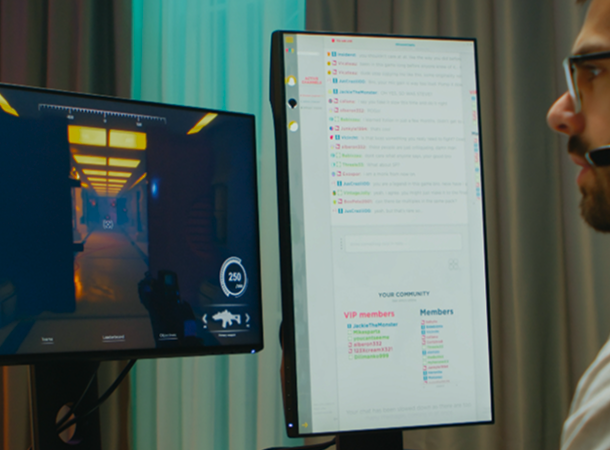
Close
In an increasingly digital world, the advantages of hiring remote software project managers have become more pronounced. One of the most significant benefits is the access to a global talent pool. Organizations are no longer confined to local talent; they can tap into a diverse range of skills and experiences from professionals around the world.
This not only enhances the quality of the project management but also brings in varied perspectives that can lead to innovative solutions. Furthermore, remote project managers often have experience working with international teams, which can be invaluable in navigating cultural differences and time zone challenges. This global reach allows companies to find the right fit for their specific needs, whether they require expertise in a particular technology or experience in a certain industry.
Another compelling advantage is cost-effectiveness. Hiring remote software project managers can significantly reduce overhead costs associated with maintaining a physical office space. Companies can save on expenses such as office supplies, utilities, and even salaries, as remote workers often command lower rates than their in-office counterparts.
Additionally, the flexibility of remote work arrangements can lead to increased productivity. Remote project managers tend to have more control over their work environments, which can enhance focus and efficiency. This flexibility also allows for a better work-life balance, which can lead to higher job satisfaction and lower turnover rates.
Ultimately, the combination of access to global talent and cost savings makes hiring remote software project managers an attractive option for many organizations.
Finding the right remote software project manager requires a strategic approach that goes beyond traditional recruitment methods. One effective strategy is to leverage specialized job boards and platforms that cater specifically to tech talent. Websites like Toptal, Upwork, and Freelancer offer a plethora of options for companies seeking skilled project managers.
These platforms not only provide access to a wide range of candidates but also allow employers to view portfolios, client reviews, and past project experiences. By utilizing these resources, organizations can streamline their search process and identify candidates who possess the necessary skills and experience for their specific projects.
Once potential candidates have been identified, the vetting process becomes crucial. It is essential to conduct thorough interviews that assess both technical skills and soft skills, such as communication and problem-solving abilities. Behavioral interview questions can be particularly effective in gauging how candidates have handled challenges in previous roles. Additionally, practical assessments or case studies can provide insight into a candidate’s project management style and their ability to adapt to different scenarios. Checking references is another critical step; speaking with former employers or colleagues can reveal valuable information about a candidate’s work ethic, reliability, and ability to collaborate with remote teams.
By taking these steps, organizations can ensure they select a remote software project manager who not only meets their technical requirements but also aligns with their company culture.

Effective communication is the cornerstone of successful remote project management. Given the geographical distances involved, establishing clear communication channels is paramount. Regular check-ins through video conferencing tools like Zoom or Microsoft Teams can help maintain a personal connection and foster collaboration among team members.
These meetings should be structured yet flexible enough to allow for open dialogue about project progress, challenges, and any necessary adjustments. Additionally, utilizing instant messaging platforms such as Slack or Discord can facilitate real-time communication, enabling team members to share updates and address issues as they arise. By creating an environment where communication flows freely, organizations can enhance team cohesion and ensure that everyone remains aligned with project goals.
Moreover, it is essential to establish clear expectations regarding communication frequency and methods from the outset. Setting guidelines for response times, preferred communication channels for different types of messages, and regular reporting structures can help mitigate misunderstandings and keep everyone on the same page. Encouraging transparency is also vital; team members should feel comfortable sharing their thoughts and concerns without fear of repercussions.
This openness fosters trust and encourages collaboration, which is particularly important in a remote setting where team members may not have the opportunity for face-to-face interactions. By prioritizing effective communication strategies, organizations can create a supportive environment that empowers remote software project managers to thrive.
The right tools and technologies play a crucial role in managing remote software project managers effectively. Project management software such as Asana, Trello, or Jira provides a centralized platform for tracking tasks, deadlines, and progress updates. These tools enable teams to visualize their workflows and prioritize tasks efficiently, ensuring that everyone is aware of their responsibilities and timelines.
Additionally, many of these platforms offer features such as file sharing and commenting capabilities, which facilitate collaboration among team members regardless of their physical location. By leveraging these technologies, organizations can enhance productivity and streamline project management processes. In addition to project management tools, communication technologies are equally important in fostering collaboration among remote teams.
Video conferencing tools like Zoom or Google Meet allow for face-to-face interactions that can help build rapport among team members. Screen sharing capabilities enable real-time collaboration on documents or presentations, making it easier to discuss complex ideas or troubleshoot issues together. Furthermore, cloud storage solutions such as Google Drive or Dropbox ensure that all team members have access to the latest project files and resources at any time.
By integrating these tools into their workflows, organizations can create a cohesive virtual workspace that supports effective collaboration and enhances overall project outcomes.
Onboarding remote software project managers requires a thoughtful approach that ensures they feel welcomed and equipped to succeed in their new roles. A comprehensive onboarding program should include an introduction to the company’s culture, values, and expectations. Providing new hires with access to essential resources such as documentation, training materials, and relevant tools from day one can help them acclimate more quickly to their new environment.
Additionally, assigning a mentor or buddy within the organization can facilitate smoother integration by offering guidance and support during the initial transition period. Furthermore, it is essential to establish clear goals and performance metrics during the onboarding process. Setting specific objectives for the first few months allows remote project managers to understand what is expected of them and how their success will be measured.
Regular check-ins during this period can provide opportunities for feedback and adjustments as needed. Encouraging new hires to participate in team meetings or social events—whether virtual or in-person—can also help them build relationships with colleagues and foster a sense of belonging within the organization. By implementing these best practices, companies can ensure that remote software project managers are set up for success from the outset.

Remote software project management offers numerous benefits, but it also presents unique challenges that organizations must navigate effectively. One common issue is the potential for miscommunication due to the lack of face-to-face interactions. Without non-verbal cues such as body language or tone of voice, messages can be easily misinterpreted, leading to misunderstandings or conflicts within the team.
To mitigate this risk, it is crucial to establish clear communication protocols and encourage team members to ask clarifying questions when needed. Additionally, fostering an environment where feedback is welcomed can help address any issues before they escalate.
Remote work can sometimes lead to feelings of isolation among team members, which may impact morale and productivity. To combat this issue, organizations should prioritize team-building activities that promote connection among colleagues. Virtual coffee breaks or team challenges can provide opportunities for informal interactions that strengthen relationships outside of work-related discussions.
Recognizing individual contributions through shout-outs or rewards can boost motivation and reinforce a sense of belonging within the team. By acknowledging the efforts of team members, organizations can create a positive and supportive work environment that encourages collaboration and productivity.
By proactively addressing these challenges, organizations can create a positive remote work culture that supports effective software project management. By prioritizing communication, team cohesion, and motivation, organizations can overcome the unique challenges of remote work and achieve success in their software projects.
As technology continues to evolve at an unprecedented pace, the future of remote software project management looks promising yet complex. The rise of artificial intelligence (AI) and machine learning is poised to revolutionize how projects are managed remotely by automating routine tasks such as scheduling meetings or tracking progress updates. These advancements will allow project managers to focus on higher-level strategic planning rather than getting bogged down by administrative duties.
Additionally, AI-driven analytics tools will provide valuable insights into team performance and project outcomes, enabling organizations to make data-driven decisions that enhance efficiency. Moreover, as remote work becomes increasingly normalized across industries, organizations will need to adapt their management practices accordingly. Emphasizing flexibility in work arrangements will be essential; companies that embrace hybrid models—combining remote work with occasional in-office collaboration—are likely to attract top talent seeking work-life balance.
Furthermore, investing in ongoing training and development opportunities for remote software project managers will be crucial in keeping pace with technological advancements and industry trends. By fostering a culture of continuous learning and adaptation, organizations can position themselves for success in the ever-evolving landscape of remote software project management.
If you’re considering hiring remote software project managers, it’s also crucial to understand the broader context of IT staff augmentation and how to select the right partners for your business needs. A related article that might be beneficial is “How to Choose the Right IT Staff Augmentation Partner.” This guide provides essential insights into evaluating potential partners, ensuring they align with your project requirements and business goals. You can read more about this topic and make informed decisions by visiting How to Choose the Right IT Staff Augmentation Partner.
A remote software project manager is a professional who oversees the planning, execution, and delivery of software development projects, but does so from a remote location rather than being physically present in the office.
Hiring a remote software project manager can provide benefits such as access to a wider talent pool, cost savings on office space and overhead, flexibility in working hours, and the ability to leverage expertise from different geographical locations.
A remote software project manager should possess strong communication skills, proficiency in project management tools and methodologies, technical knowledge of software development processes, and the ability to effectively manage remote teams.
Companies can effectively manage remote software project managers by setting clear expectations and goals, providing the necessary tools and resources for remote work, establishing regular communication channels, and fostering a culture of trust and accountability.
Some challenges of hiring remote software project managers include potential communication barriers, difficulties in team coordination and collaboration, time zone differences, and the need for strong self-discipline and time management skills.
Augmented Team Pvt Ltd

